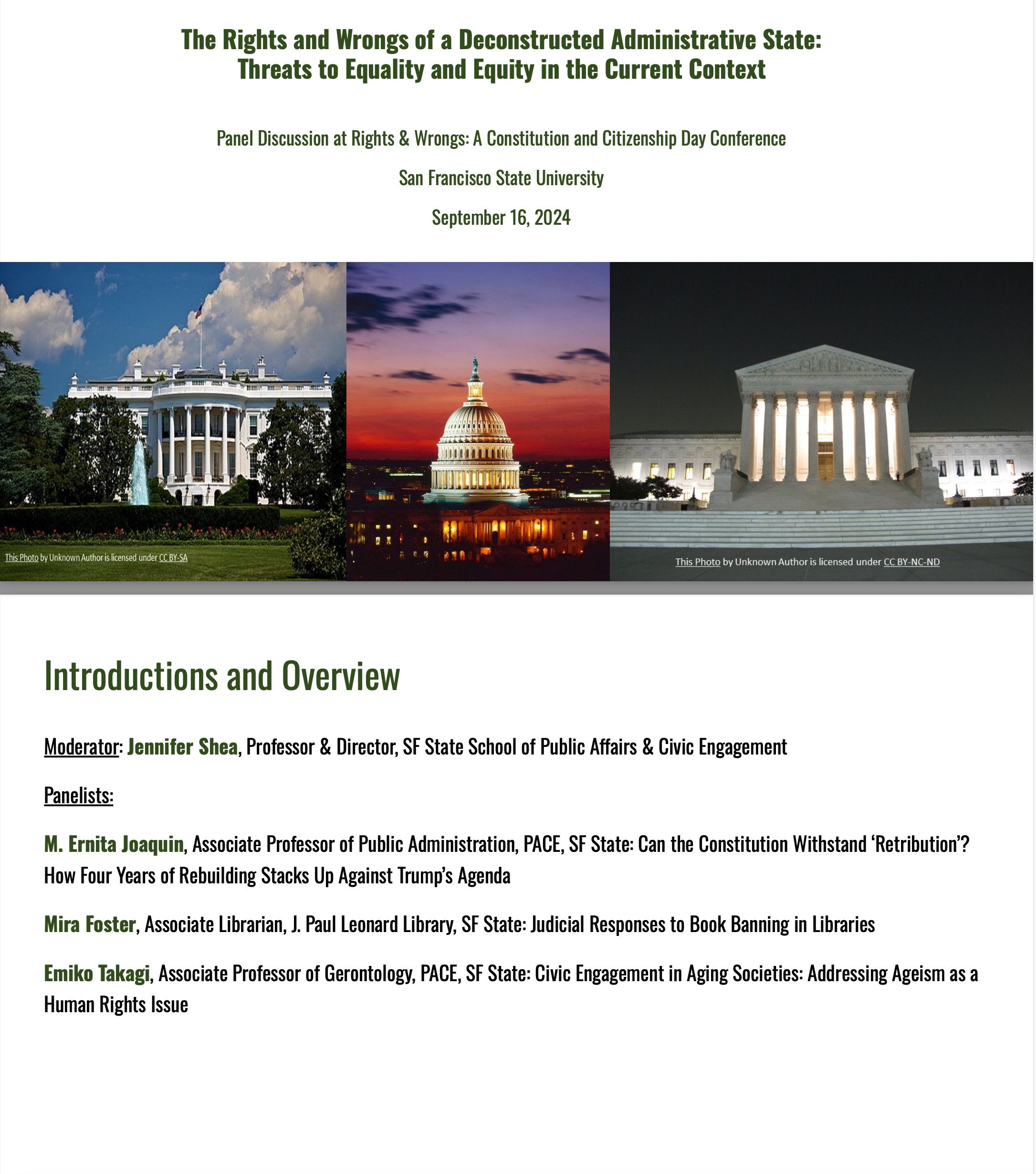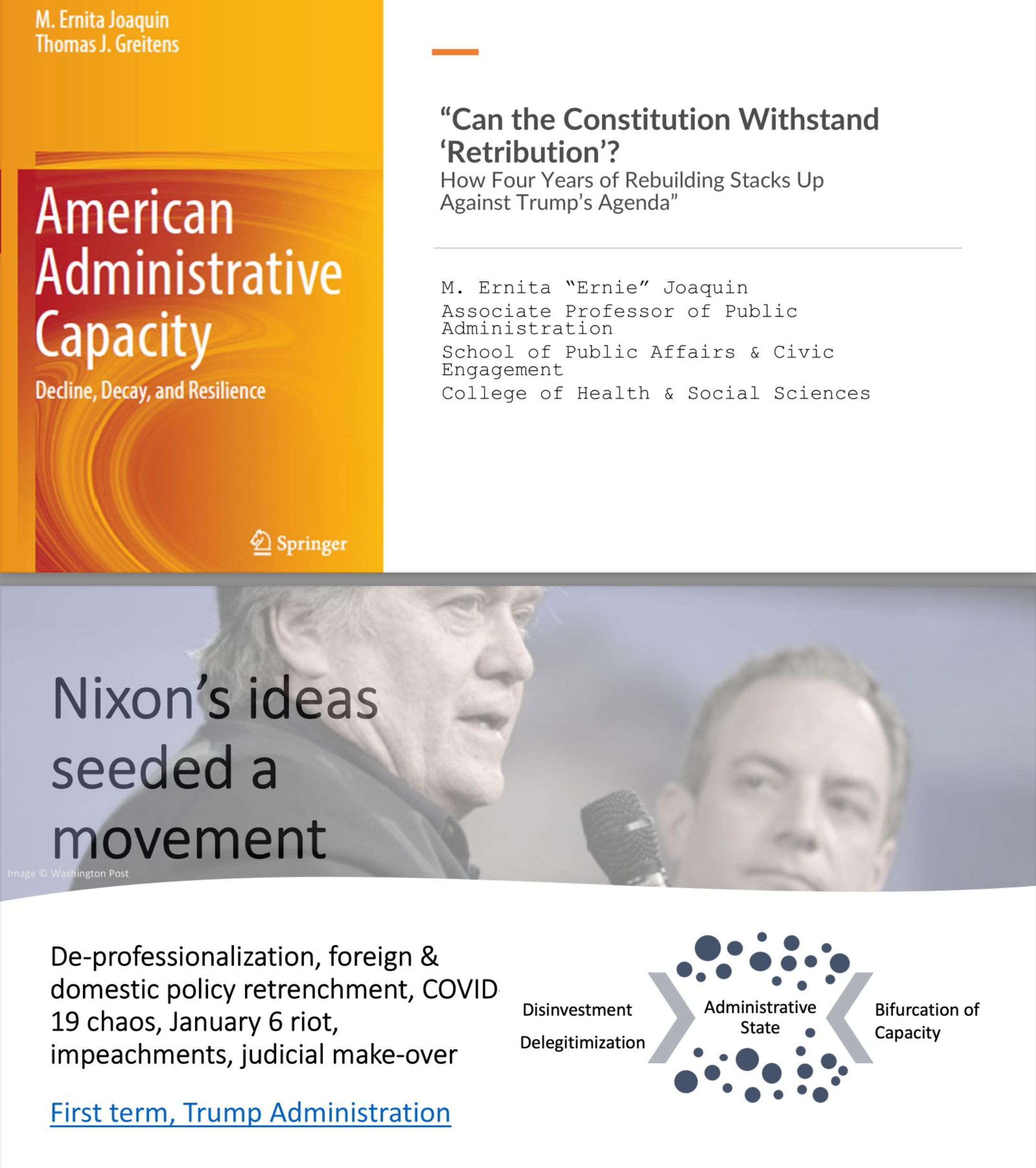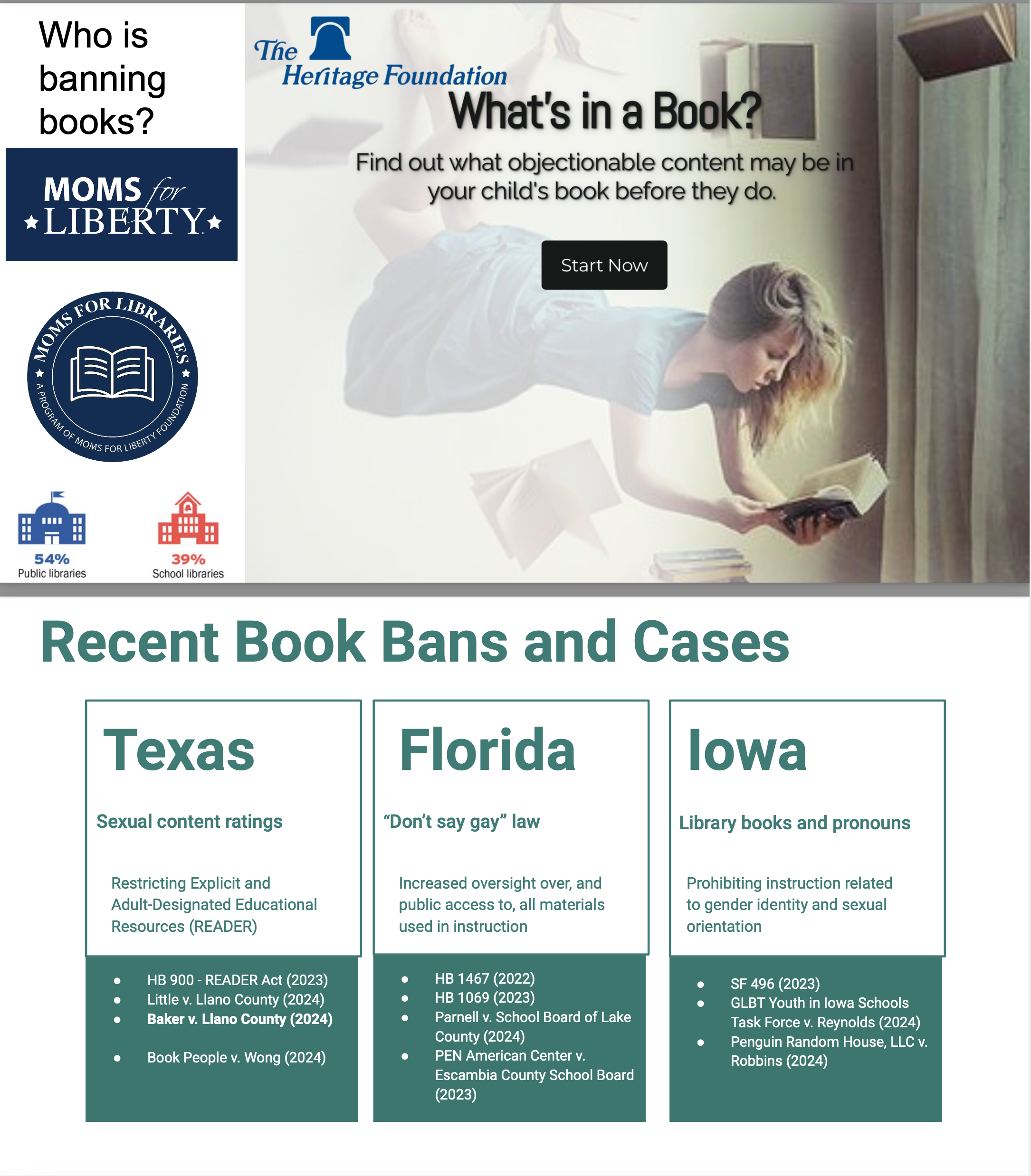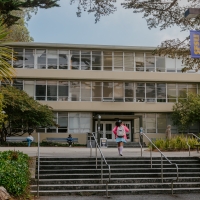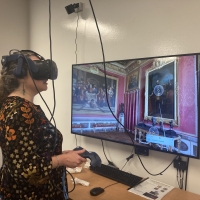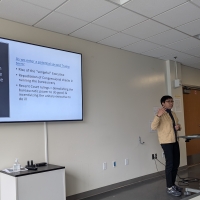PACE Faculty on the Rights and Wrongs of a Deconstructed Administrative State
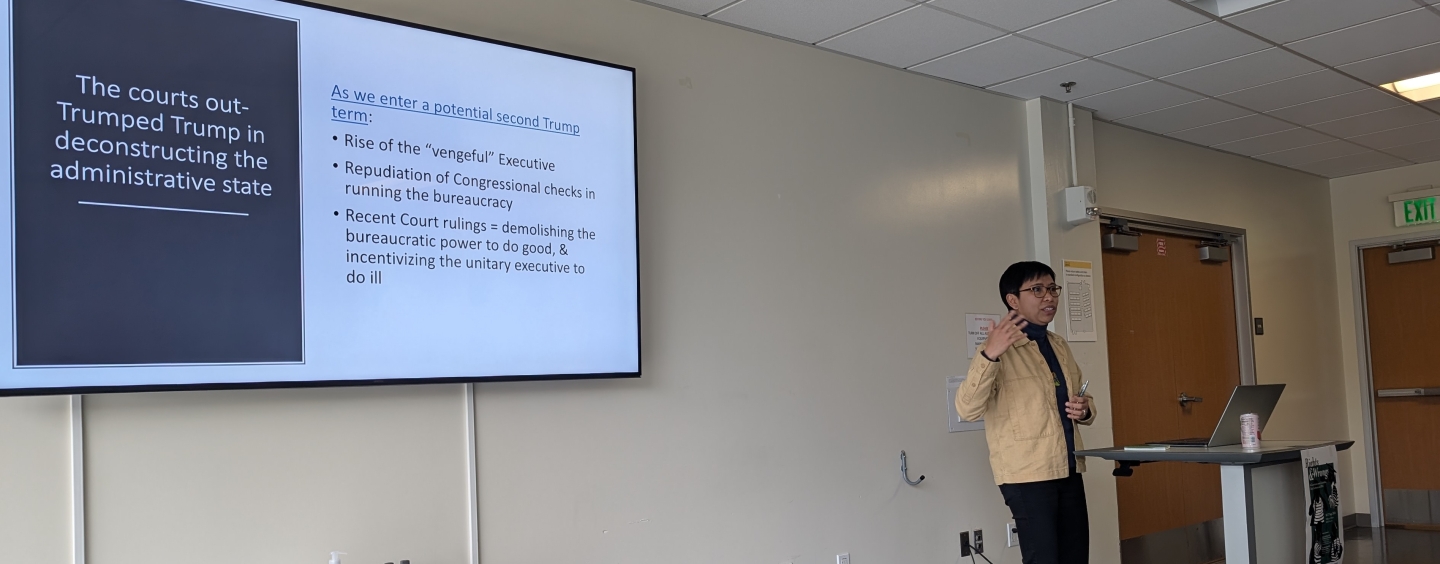
PACE Professor and Director Jennifer Shea moderated a compelling panel on “The Right and Wrongs of a Deconstructed Administrative State: Threats to Equality and Equity in the Current Context,” which featured presentations by PACE faculty Drs. Ernie Joaquin and Emiko Takagi and Associate Librarian Mira Foster. Part of the” Rights and Wrongs: A Constitution and Citizenship Day Conference” hosted by SF State University on September 16-17, 2024, the panel brought together diverse voices from Public Administration, Gerontology, and the University Library to critically examine pressing issues related to constitutional protections and social justice. Together, the panelists painted a comprehensive picture of the challenges facing constitutionalism and human rights in today’s America. They explored how political agendas, censorship, and discrimination intersect, ultimately threatening the foundational values of equality and equity.
Dr. Ernie Joaquin opened the session by addressing the precarious state of the U.S. administrative framework, delving into the political back-and-forth that has characterized recent years, and asking whether four years of policy reform can counteract the lasting impacts of the Trump administration’s agenda. Mira Foster highlighted a different but equally urgent issue: the rise of book bans in public libraries across the country, shedding light on how local school boards and state laws are increasingly restricting children's access to diverse educational materials. Dr. Emiko Takagi turned the conversation to the issue of ageism. She described how age-based discrimination, often overlooked in public discourse, reinforces broader systemic inequities, particularly in healthcare and social services. "Ageism is not just a problem for older generations—its impacts ripple across society," Takagi noted.
Dr. Shea moderated a critical conversation on the impact of political agendas and administrative changes on constitutional protections, with a focus on how these shifts threaten the principles of equality and equity. Attendees left with a deeper understanding of the urgent need to protect rights across all sectors of society, and the role universities play in fostering critical discussions that drive social change. The conversation underscored SF State's commitment to tackling contemporary issues at the intersection of policy, social justice, and human rights.
